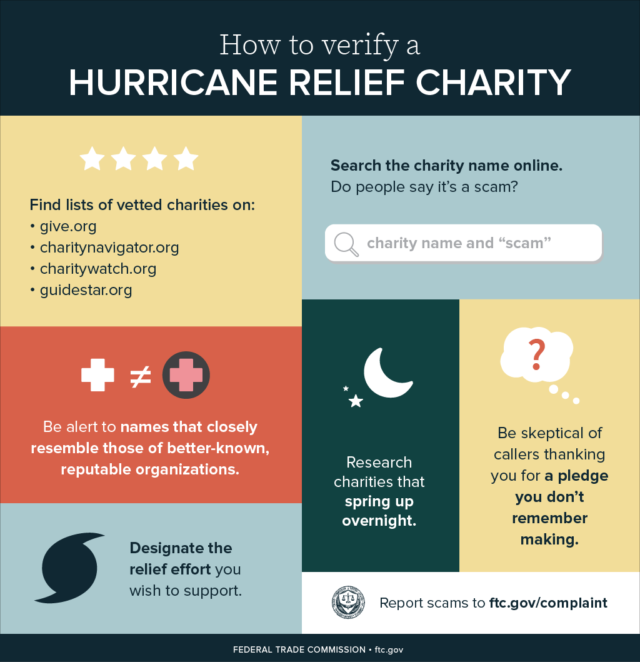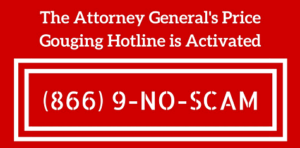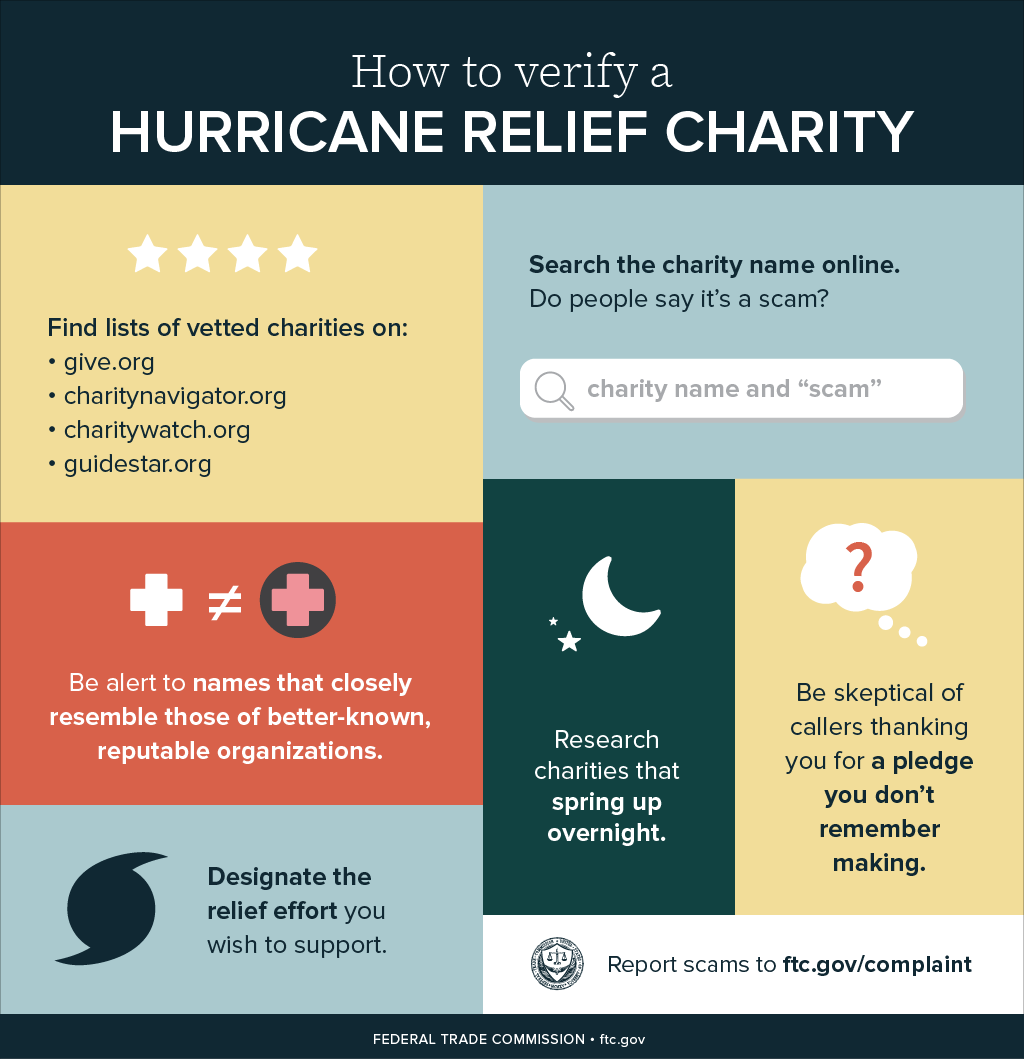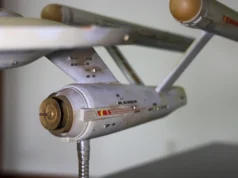
Feds wasting little time warning about Hurricane Relief Scams. Good reading to make sure your donations get where they are needed and NOT in the pockets of high-priced fundraisers or scammers.
As Hurricane Michael leaves its path of destruction, scammers continue to con people who want to help those affected by past hurricanes. Case in point: The Federal Trade Commission and its state and local partners are getting reports about sham charities following Hurricane Florence’s devastating impact on North and South Carolina.
To make sure your donation counts, and to avoid fraud, follow these tips:
- Check out the charity with the Better Business Bureau’s (BBB) Wise Giving Alliance, Charity Navigator, Charity Watch, or GuideStar.
- Find out if the charity or fundraiser must be registered in your state by contacting the National Association of State Charity Officials. If they should be registered, but they’re not, consider donating through another charity.
- Don’t assume that charity messages posted on social media are legitimate. Research the organization yourself.
- When texting to donate, confirm the number with the source before you donate. The charge will show up on your mobile phone bill, but donations are not immediate.
- If you know the charity is legitimate and you are ready to donate, designate the disaster so you can ensure your funds are going to disaster relief, rather than a general fund that the charity could use for any of its work.
If you think you’ve donated to a sham charity, report it to the FTC at ftc.gov/complaint. Your complaints help us stop rip-off artists and scammers.

State law prohibits extreme increases in the price of essential commodities, such as food, water, hotels, ice, gasoline, lumber and equipment, needed as a direct result of an officially declared emergency.
Anyone who suspects price gouging during this declared state of emergency should report it to the Florida Attorney General’s Office by calling 1 (866) 9NO-SCAM or visiting MyFloridaLegal.com.
Violators of the price gouging statute are subject to civil penalties of $1,000 per violation and up to a total of $25,000 for multiple violations committed in a single 24-hour period. In addition to the civil penalties for price gouging, state law criminalizes the sale of goods and services to the public without possession of an occupational license. Violators of the law can be charged with a second-degree misdemeanor.
Specifically, Florida Statute 501.160 states that during a state of emergency, it is unlawful to sell, lease, offer to sell, or offer for lease essential commodities, dwelling units, or self-storage facilities for an amount that grossly exceeds the average price for that commodity during the 30 days before the declaration of the state of emergency, unless the seller can justify the price by showing increases in its costs or based on market trends.
Counties under the declared state of emergency include: Escambia, Santa Rosa, Okaloosa, Walton, Holmes, Washington, Bay, Jackson, Calhoun, Gulf, Gadsden, Liberty, Franklin, Leon, Wakulla, Jefferson, Madison, Taylor, Hamilton, Suwannee, Lafayette, Dixie, Columbia, Gilchrist, Levy, Citrus, Bradford, Pasco, Hernando, Pinellas, Hillsborough, Manatee, Alachua, Union, and Baker.













